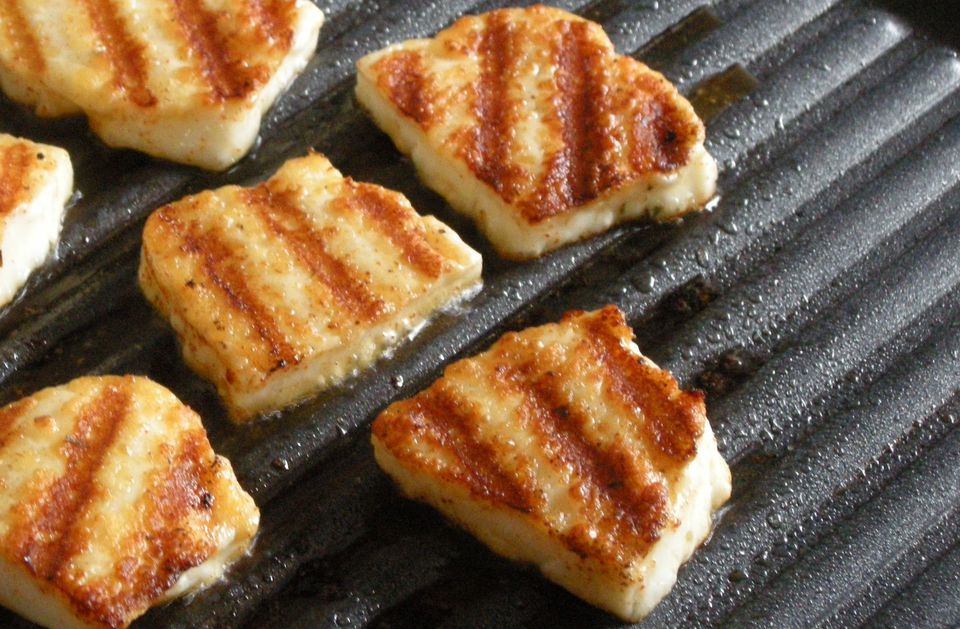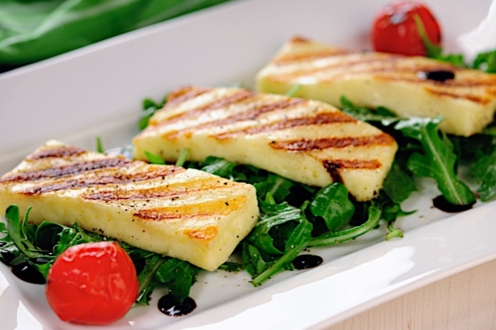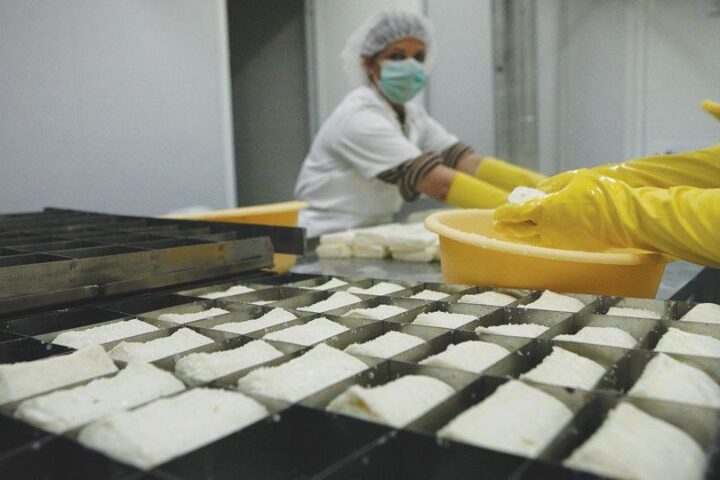Government officials and dairy producers have agreed to disagree on how best to protect Cyprus’ famous cheese because there is no consensus on the traditional recipe.
Although agreeing to move forward with protecting the Cypriotness of halloumi as a product of Protected Designation of Origin, there is disagreement on the thorniest issue of the PDO file – how the cheese is made.
The “godmother” of the original PDO file to be submitted to the EU, Maria Kyriacou, a former DISY MP, told the Financial Mirror that “authorities are currently doing what we Cypriots are best at, putting the blame on someone else”.
Government and dairy producers, along with the cattle breeders, are divided on the description of the product, as they do not see eye to eye on how much sheep and cow milk should be used in the Halloumi mix.
President Nicos Anastasiades gathered halloumi stakeholders to the Presidential Palace on Wednesday, aiming to convince producers to increase the ratio of goat and sheep milk in the squeaky cheese to 25%-75% respectively.
The government wants to increase the ratio before 2024, when producers must follow the PDO guidelines, using at least 51 per cent sheep’s and goats’ milk, according to the traditional recipe
Faced with a negative reaction from cattle farmers and dairy producers, the government-backed down, agreeing to keep the ratio of goat and sheep milk to cow milk at 20-80%.
The matter has been pushed down the road, while the government is also pressuring EU authorities to approve of the PDO file with a description which does not appear to be feasible.
Wednesday’s meeting came in the wake of the re-registration of the halloumi trademark in the UK after it was lost due to a blunder by trade ministry officials.
The trademark was lost due to the government’s failure to mount a challenge and dispatch the necessary paperwork within the set deadline after British-based company, John & Pascalis Ltd, filed three separate applications on December 22, 2017, to invalidate or revoke the trademark.
According to a representative of the Cyprus Dairy Producers Association, the government is to try and convince Brussels to extend the application of the file for 10 years, citing delays on behalf of the EU Commission.
Lack of consensus
Following Wednesday’s meeting, Agriculture Minister Costas Kadis told reporters that the sides had agreed on a roadmap to be followed before the PDO file is raised with the new European Commission.
Kadis said the meeting with halloumi stakeholders was held “in a constructive manner, focused on efforts to find consensual solutions while remaining committed to approving the dossier submitted to the European Commission.”
The minister said he is to meet with the new EU Health and Agriculture Commissioners in the coming weeks.
Commenting on the thorny issue of sheep to cow milk ratio, the minister confirmed that the sides had not reached an agreement on the matter.
“The possibility of increasing the proportion of sheep and goat milk in the composition of halloumi was also discussed, with various proposals tabled.
We ended up agreeing to keep the current quota, but there was a guarantee from the dairy producers that they would be buying all available sheep and goat, milk paying producers an extra premium of five cents to the litre,” said Kadis.
The details of this arrangement will be discussed further.
At the Palace meeting dairy producers reportedly admitted to falsifying documents submitted to authorities indicating that they had been sticking with the 20%-80% goat and sheep to cow milk ratio.
The Ministry of Agriculture wanted to increase the use of goat’s milk in halloumi to 25%.
But dairy producers claimed they were struggling to meet the current ratio of 20% goat and sheep milk, giving false data to show they were meeting this target when were not.
Dairy producers allegedly let slip at the meeting that they are having difficulties in obtaining goat’s milk.
Reportedly, Ministry of Agriculture officials said the amount of halloumi produced was more than the goat and sheep milk delivered to procedures, meaning the ratio had been diluted.
In comments to the Financial Mirror, Andreas Andreou, secretary of the Cyprus Dairy Producers, confirmed the stalemate.
Commenting on reports that dairy producers admitted to President Anastasiades that they are falsifying milk quotas, Andreou said that if this is the case, it would involve a small number of producers who are driven to do so by the scarcity of goat’s milk.
“Milk scarcity is one of the reasons why the dairy producers object to the PDO and call on the government to withdraw it,” said Andreou.
“The problem will be made worse as the file stipulates that sheep and goats producing milk for halloumi should be of Cypriot origin. At present 70% of the sheep and goat population in Cyprus are not native,” he added.
He argued that the industry will need another 10 years to prepare for changes in the milk ratio, as these breeds will need several years to adapt to Cyprus’ climate and be assimilated into local breeds.
Andreou added that when the PDO file was submitted, in July 2014, authorities should have drawn up a roadmap leading to the increase of sheep and goat’s milk.
“Instead everything was left to chance.”
“Gradually increasing goat’s milk would make our case stronger before the European Commission. A possible implementation of the file in 2024 will see us rushing to find goat’s milk, endangering the country’s 300 mln exports in halloumi,” he said.
The Cypriot way
While halloumi’s future is at stake, the traditional cheese PDO file has brought out the worst in authorities handling the issue.
Maria Kyriacou, who along with Froso Hadjilouka, then a Ministry of Commerce official, prepared the case for registering halloumi as a Cypriot product.
“What we are currently seeing is authorities and stakeholders turning a simple matter of registering a traditional cheese into a very complicated one,” said Kyriacou.
“The original file we prepared did not mention anything about ratios. On the contrary old recipes, we had found in villages, said nothing about milk ratios.
Traditionally, the women of the village would put together any available milk to make the cheese,” she added.
Kyriacou agreed that adding goat’s milk “is a must”, as this is what gives the cheese it’s texture, but during her research, she did not find any other protected cheeses with a strict milk ratio.
“At some point, people handling the file thought it best to add a milk ratio to bring out its Cypriotness. However, this has become an issue of conflict, blocking its case before the European authorities.”
Kyriacou said the authorities have further complicated the issue by wrongly making it a political one linked to the Cyprus problem.
“Of course, Turkish Cypriots should be allowed to produce and export halloumi but tying the product to the Cyprus problem and the talks, we have only brought about more delay.”
“Now, we are blaming them for delaying the file,” said Kyriacou.










